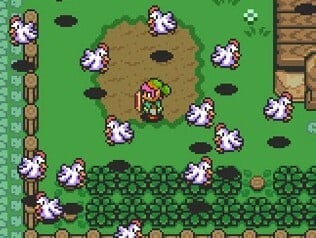I like thinking about cats as my little contract worker. We have a great relationship, but as soon as I ask him to wear a tie or show up to meetings, I very curtly and loudly am reprimanded and reminded that at the end of the day, he. is. a. contractor. and to go fuck myself
Both can, but dogs are more likely to because of the breeding. I’d say it still qualifies, since most dogs do not automatically like all humans. You’d have to disqualify a child’s love that you raised as well, otherwise.
We mostly just kept them around for the benefits as well! As agriculture took off, rats and mice became a problem, so we’d let cats hang around to take care of them. This was just a few thousand years ago, vs. the tens of thousands of years of selective breeding of wolves!
We’ll never know for sure, but just knowing how cats are today, I believe the hypothesis that they initiated it. The idea that people went out and brought in wild cats to keep down the rodent population doesn’t seem as likely as cats going where the food is and people tolerating them because they killed the rodents (and the kittens being cute also probably helped).
I support the theory that it was the cats who started it. They are also only partially domesticated. When humans began farming grains the rodent population near them exploded. Cats who were less timid around humans got more rodents. Humans seeing the value of having cats fed the cats during times when the rodent population was low.
If you’ve ever been around feral barn cats this pattern is the same today. They are constantly on the edge of being wild/domesticated.
You don’t get to take credit for that. We’ve been selectively breeding dogs for 30,000 years to get them to where they are today!
Cats are only sort of domesticated, and they chose to do it. Mostly they stay with us for the benefits.
So what I’m hearing is, we Stockholm syndrome’d dogs into loving us, but cats chose to love us… So who offers the real unconditional love?
I think its more we’ve enslaved dogs and we hire cats on a freelance basis.
I like thinking about cats as my little contract worker. We have a great relationship, but as soon as I ask him to wear a tie or show up to meetings, I very curtly and loudly am reprimanded and reminded that at the end of the day, he. is. a. contractor. and to go fuck myself
But they’re like house elves in that they like being enslaved.
Both can, but dogs are more likely to because of the breeding. I’d say it still qualifies, since most dogs do not automatically like all humans. You’d have to disqualify a child’s love that you raised as well, otherwise.
We mostly just kept them around for the benefits as well! As agriculture took off, rats and mice became a problem, so we’d let cats hang around to take care of them. This was just a few thousand years ago, vs. the tens of thousands of years of selective breeding of wolves!
Yes, it was a mutually beneficial relationship. But while we’ve been breeding dogs for so long that they’ll die for us, cats are much less obsequious.
You really gotta hand it to cats - they attached themselves to the dominant species on the planet. Smart! Dogs we chose to let live with us.
Chickens?
Umm… yes?

In the cat/human relationship, the jury is still out on which species domesticated the other…
We’ll never know for sure, but just knowing how cats are today, I believe the hypothesis that they initiated it. The idea that people went out and brought in wild cats to keep down the rodent population doesn’t seem as likely as cats going where the food is and people tolerating them because they killed the rodents (and the kittens being cute also probably helped).
I support the theory that it was the cats who started it. They are also only partially domesticated. When humans began farming grains the rodent population near them exploded. Cats who were less timid around humans got more rodents. Humans seeing the value of having cats fed the cats during times when the rodent population was low.
If you’ve ever been around feral barn cats this pattern is the same today. They are constantly on the edge of being wild/domesticated.